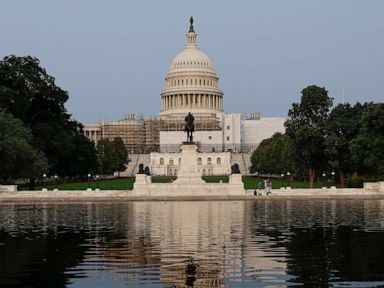


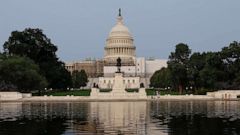
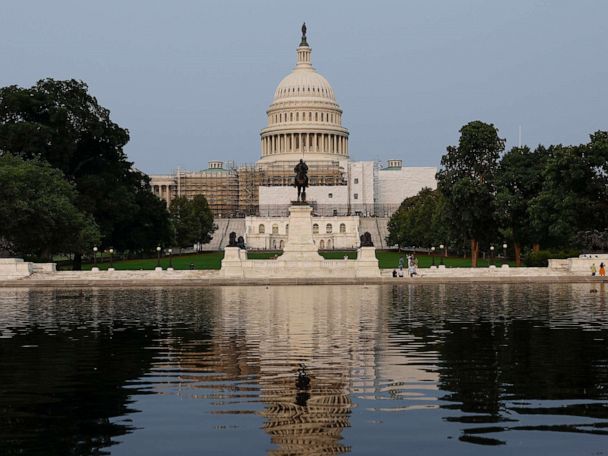
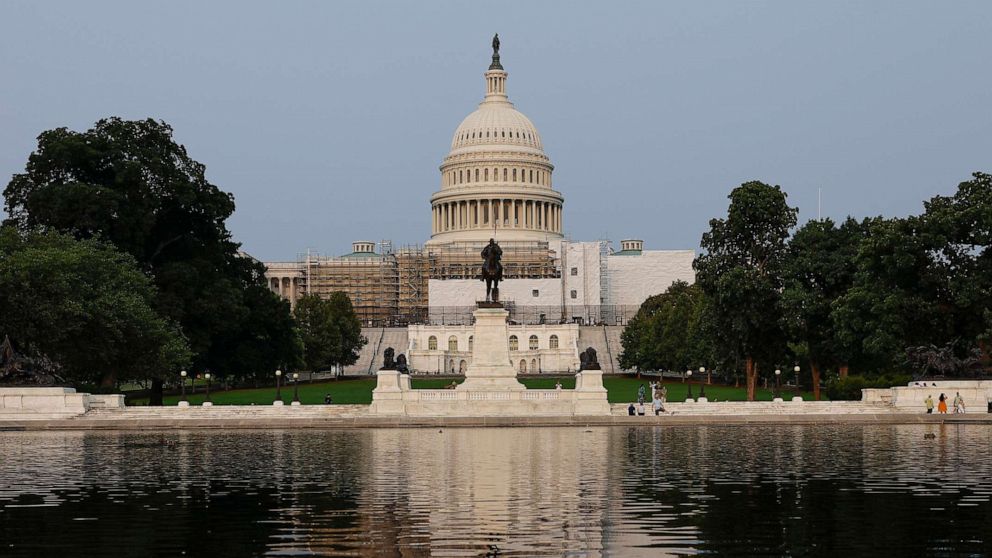
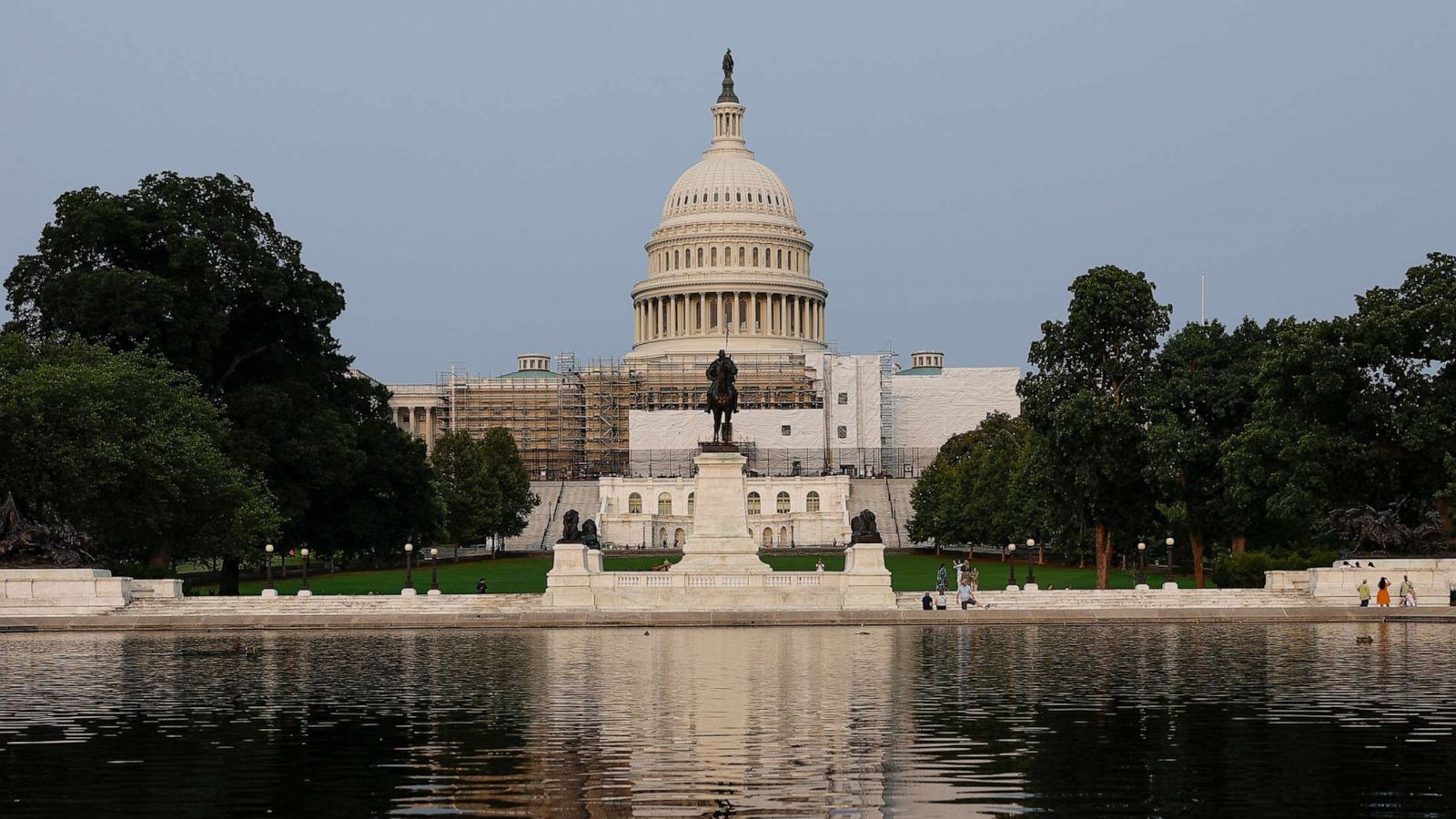
A rating agency downgraded U.S. credit for the second time in the nation’s history on Tuesday, sounding an alarm with implications for the economy and everyday people’s finances if U.S. debt continues to grow, analysts told ABC News.
Fitch Ratings lowered the country’s credit rating to AA+ from AAA, citing the ballooning U.S. debt load and a weakening of governance. On top of that, Fitch expects the U.S. to enter a recession later this year, the agency said.
The rating downgrade comes months after a federal stalemate delayed a debt-ceiling agreement until days before the U.S. was expected to lose its ability to pay outstanding financial obligations.
Analysts downplayed the immediate economic effect of the rating decision but said it marks a significant milestone on a path of increasing debt that could ultimately raise the nation’s borrowing costs, threaten economic growth and hike interest rates for consumer loans like credit cards and mortgages.
U.S. Treasury Secretary Janet Yellen criticized the decision made by Fitch in a statement on Tuesday.
“Fitch’s decision does not change what Americans, investors, and people all around the world already know: that Treasury securities remain the world’s pre-eminent safe and liquid asset, and that the American economy is fundamentally strong,” Yellen said on Tuesday.
Here’s what to know about what the rating decision means for the economy and your finances:
What the credit downgrade means for the economy
Credit-rating decisions like the one issued by Fitch on Tuesday center on a simple dynamic: the nation’s capacity to pay off its growing debt.
Since yearly spending by the federal government exceeds tax revenue, the U.S. has accrued tens of trillions of dollars in debt, requiring the country to make ongoing payments so that it doesn’t default on outstanding loans.
The credit downgrade is one in a sequence of developments that could eventually lead investors to believe the U.S. is less likely to pay off its debt. In that case, investors would demand a higher interest rate for loans and, in turn, U.S. debt would become more costly.
The federal government could then lose some of its ability to spend on social welfare programs and projects that help stimulate the economy, which in the long term could slow economic growth and leave the nation vulnerable to financial setbacks, Shai Akabas, director of economic policy at the Bipartisan Policy Center, told ABC News.
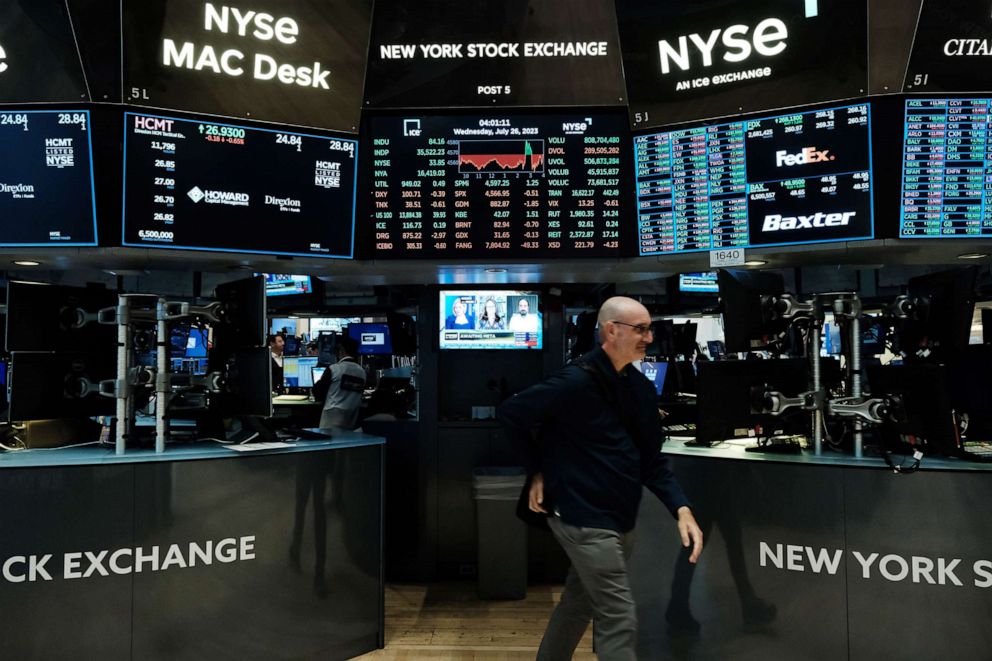
Traders work on the floor of the New York Stock Exchange (NYSE) on July 26, 2023 in New York.
Spencer Platt/Getty Images
“The larger our debt becomes and the higher our interest rates are, the more of our federal taxes will go to paying interest on the debt, which isn’t creating anything of value for the economy or providing support for Americans,” Akabas said.
“That would make us less able to respond to future crises,” he added.
For now, however, analysts said the rating announcement bears little on the sterling reputation of U.S. Treasury bonds, the financial instrument that allows the country to borrow money in return for a promise that it will pay back lenders with interest.
“I don’t think global investors learned anything from the downgrade,” Mark Zandi, chief economist at Moody’s Analytics, told ABC News. “When push comes to shove, if anything is going on in the global economy or even in the U.S., they’ll come here and buy U.S. treasury bonds. It’s the safest asset on the planet.”
What the credit downgrade means for the finances of everyday people
Like the economic threat posed by the rating announcement, the possible financial impact would be long-term rather than immediate, analysts said.
If U.S. debt grows and the government struggles to address it, consumers could face higher interest rates for loans since the nation and its borrowers would be deemed less trustworthy, they added. That would mean higher costs for borrowing for everything from credit cards to mortgages to cars.
“I don’t think we need to do it this month, this quarter or this year,” Zandi said. “But if we don’t make policy solutions to address the longer-term debt situation, then rates will rise.”
More immediately, the stock market ticked downward in afternoon trading on Wednesday in response to the rating decision. The tech-heavy Nasdaq fell nearly 2%; while the S&P 500 dropped more than 1%.
Ivan Feinseth, Tigress Financial market analyst, said he considers the stock downturn a temporary blip since fundamental economic conditions remain solid amid easing inflation and job growth.
“The reaction of the market is even sillier than the downgrade,” Feinseth said. “This has created a buying opportunity for stocks.”
